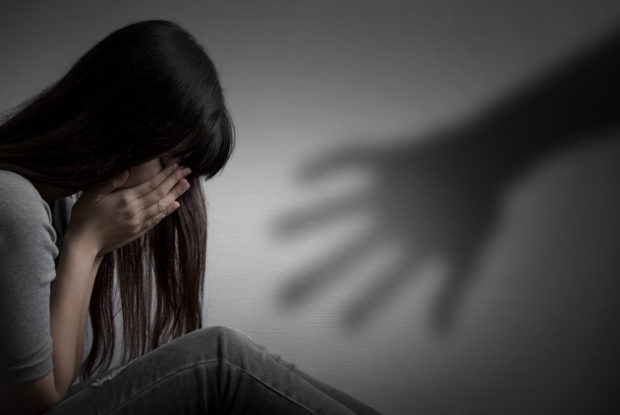Pandemic worsens online child sexual abuse in PH, says global report
MANILA, Philippines — In front of a computer camera, 16-year-old Ruby (name changed for victim’s protection) was forced to perform for viewers as her sexual exploitation was streamed live.
“It’s like being trapped in a dark room without any rays of light at all. There’s no point in living at all. You do disgusting shows every day, every time, and then after doing that, you go to sleep and then repeat the same routine every day and it’s like there’s no ending at all,” she said.
The victim’s sexual abuse started when she received a private message on social media from someone who offered her a staff job at a computer shop with a reasonable salary, free boarding, and lodging, plus reimbursement for travel expenses.
But Ruby soon found out that the actual job was different from what she had been told. She tried to escape but was threatened with a knife by the couple running the trafficking operation, who told her she must first pay off her debts to them.
Acting on a tip from the US Homeland Security Investigations, the nongovernmental organization International Justice Mission’s (IJM) Center to End Online Sexual Exploitation of Children coordinated with Philippine authorities to rescue the victim.
Article continues after this advertisementThe traffickers were convicted and sentenced to jail while IJM helped Ruby in her restoration journey.
Article continues after this advertisementNow free and safe, she was thinking of pursuing a law degree to help other girls under similar circumstances, according to WeProtect Global Alliance, a global movement of people and organizations that aims to end child sexual exploitation and abuse online.
Significant spike
Ruby’s story is just one of the many cases of child sexual exploitation and online abuse, although a significant spike was observed last year due to the COVID-19 pandemic that led to kids spending more time on private messaging services behind closed doors.
Based on a newly published 2021 Global Threat Assessment report by WeProtect Global Alliance, the Philippines—identified by the United Nations Children’s Fund as the “global epicenter of the livestream sexual abuse trade”—recorded a 265-percent increase in online child sexual abuse between March and May 2020.
Iain Drennan, WeProtect Global Alliance executive director, said that the internet has become central to children’s lives across the globe and “even more so as a result of the COVID-19 pandemic.”
“Over the past two years, we have observed an increase in the scale and complexity of child sexual abuse online. This report should act as a wake-up call to us all; together we must step up the global response and create a safer digital world for all children,” he said.
As part of the report, London-based think tank Economist Impact accomplished a global study of childhood experiences of over 5,000 young adults across 54 countries.
Based on the findings, more than one in three respondents, or 34 percent, had been asked to perform in their childhood sexually explicit acts online that they found uncomfortable.
The report also saw a trend of rising child “self-generated” sexual materials after the Internet Watch Foundation observed a 77-percent increase from 2019 to 2020.
WeProtect Global Alliance cited an online group formed by teenagers, which was intended for the buy-and-sell of sexual images in the Philippines. “Created as a result of the financial challenges brought about by the pandemic, the group had garnered 7,000 members by the time it was taken down,” it said.
Economist Impact also found that girls and respondents who identified themselves as members of the LGBTQ (lesbian, gay, bisexual, transgender, queer) community and/or had a disability were more likely to experience sexual exploitation as a child.
Respondents from racial or ethnic minorities, on the other hand, were shown to be less likely to ask for help.
“The Global Threat Assessment reveals that livestreamed child sexual abuse for payment is increasing, with demand-side offenders unable to travel turning to livestreamed abuse. This is a reminder that greater global and national collaboration is needed to protect children through sustained whole-of-society approaches, including more effective and resourced justice systems,” said John Tanagho, director of IJM Center to End Online Sexual Exploitation of Children. INQ
